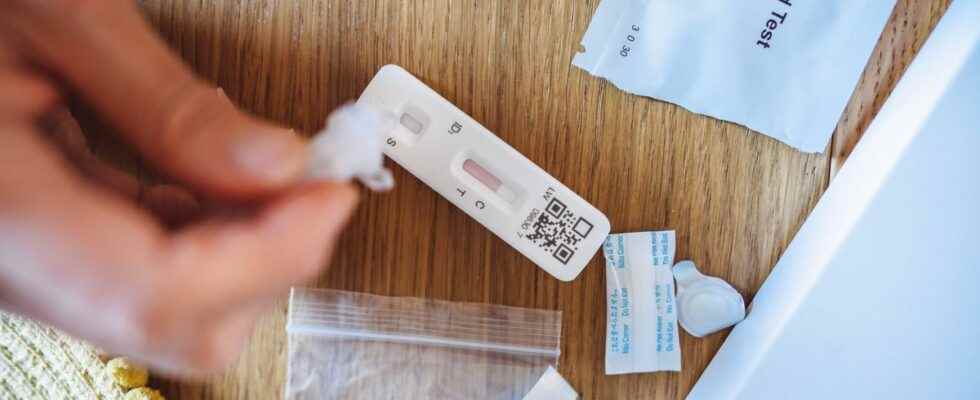Posted ,
Reading 2 mins.
in collaboration with
Dr Gérald Kierzek (Medical Director of Doctissimo)
The sub-variant named BA.2, the mutated version of the Omicron variant, would be responsible for more and more contaminations in France. And for good reason, it would be about 30% more contagious. Questions about the immunity conferred by an infection or vaccination can then emerge. Doctor Gérald Kierzek, medical director of Doctissimo, gives us his expert opinion on immunity.
Immunity at the heart of the Covid-19 epidemic
According to the Institut Pasteur, herd immunity corresponds to the quantity in “percentage of a given population that is immune/protected against an infection […] effectively bringing the epidemic to extinction, because the pathogen encounters too many protected subjects.“According to the Foundation’s calculations, with regard to Covid-19, herd immunity is achieved when 80% of the population is protected. According to CovidTracker, an analysis tool supported by the Ministry of Health, 79.1% of French people have received all the required doses of vaccine.
However, collective immunity is not achieved only with vaccination, as explained by Dr. Kierzek, an emergency physician.
In effect, “Herd immunity is essentially based on three types of immunity:
- vaccination;
- post-infectious;
- natural”.
The three types of immunity
Regarding Covid-19, “the vaccine stimulates antibodies only against the Spike protein”. It has recently been demonstrated, according to a study published in the scientific journal Cell, that the vaccine was less effective against the Omicron variant compared to the Delta variant. As for “cross-immunity, it is important and helps to achieve collective immunity”, as Gérald Kierzek points out.
In immunology, immunity is said to be crossed when an antibody is effective against a specific pathogenic agent, but also another pathogenic agent which presents a very close antigen. As a reminder, an antigen is a substance foreign to the body capable of triggering immune reactions.
The second type of immunity results from infection. According to Dr. Kierzek, “post-infectious immunity is more durable and strong” than vaccine immunity, especially during virus mutations, as is the case with the Sars-Cov-2 coronavirus and its variants.
As for natural immunity, it is an innate form of protection, but it is not specific to a particular infectious agent. It helps to fight against pathological processes and depends on the general state of health of individuals and is variable from person to person and over time.
Consult a GP online
Does immunity decrease over time?
As Dr. Kierzek puts it, “it is unknown whether immunity wanes over time”. Indeed, it is possible that the “antibody dosage drops, but it is not necessarily the true reflection of our defenses. It is only part of the immunity because we are unable to measure in current practice the immunity as a whole”.
